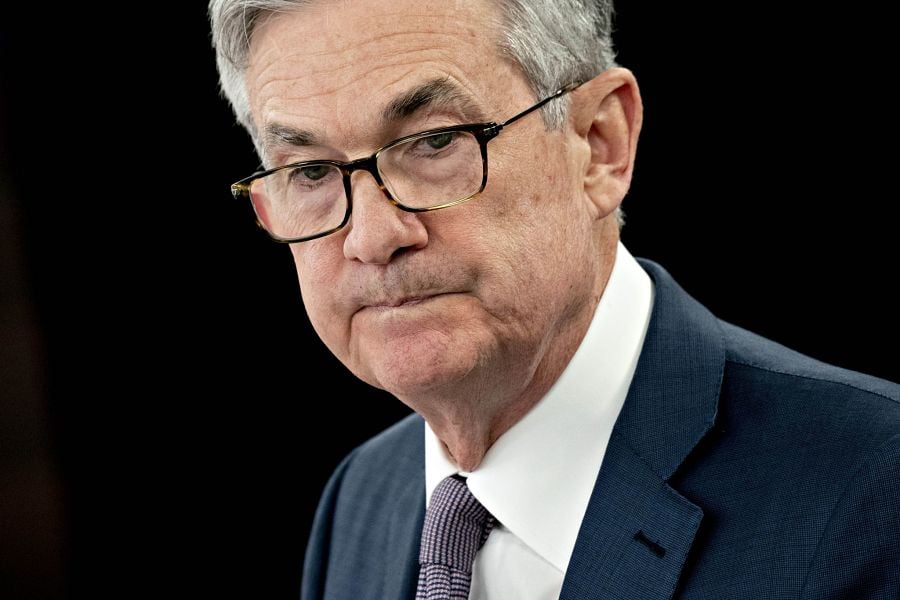

Federal Reserve chair Jerome Powell signaled policymakers will wait longer than previously anticipated to cut interest rates following a series of surprisingly high inflation readings.
Powell pointed to the lack of additional progress made on inflation after the rapid decline seen at the end of last year, noting it will likely take more time for officials to gain the necessary confidence that price growth is headed toward the Fed’s 2 percent goal before lower borrowing costs.
If price pressures persist, he said, the Fed can keep rates steady for “as long as needed.”
“The recent data have clearly not given us greater confidence and instead indicate that is likely to take longer than expected to achieve that confidence,” Powell said Tuesday in a panel discussion alongside Bank of Canada Governor Tiff Macklem at the Wilson Center in Washington.
“Given the strength of the labor market and progress on inflation so far, it is appropriate to allow restrictive policy further time to work and let the data and the evolving outlook guide us,” Powell said.
The Fed chair's remarks represent a shift in his message following a third straight month in which a key measure of inflation exceeded analysts’ forecasts. It also shows officials see little urgency to cut rates and suggests that any reductions in 2024 may come relatively late in the year, if at all.
Policymakers narrowly penciled in three interest-rate cuts in forecasts published last month, but investors are now betting on just one to two cuts this year, futures markets show. The Federal Open Market Committee, the group of officials that sets interest rates, next meets April 30-May 1.
Treasury yields remained higher, while the S&P 500 held lower.
The US economy continues to surprise Fed officials with its resilience. Employers added more than 300,000 jobs in March — the most in nearly a year — and retail sales topped expectations. That strength has coincided with a pickup in price pressures in 2024, raising concerns about a stalling in progress toward the central bank’s inflation goal.
Earlier Tuesday, Fed Vice Chair Philip Jefferson said he expects inflation will continue to moderate with interest rates at their current level but persistent price pressures would warrant holding borrowing costs high for longer. Richmond Fed President Thomas Barkin said some recent data, including the consumer price index, has not “been supportive” of a soft landing.

From outstanding individuals to innovative organizations, find out who made the final shortlist for top honors at the IN awards, now in its second year.

Cresset's Susie Cranston is expecting an economic recession, but says her $65 billion RIA sees "great opportunity" to keep investing in a down market.

“There’s a big pull to alternative investments right now because of volatility of the stock market,” Kevin Gannon, CEO of Robert A. Stanger & Co., said.

Sellers shift focus: It's not about succession anymore.

Platform being adopted by independent-minded advisors who see insurance as a core pillar of their business.
RIAs face rising regulatory pressure in 2025. Forward-looking firms are responding with embedded technology, not more paperwork.
As inheritances are set to reshape client portfolios and next-gen heirs demand digital-first experiences, firms are retooling their wealth tech stacks and succession models in real time.
